The Terrifier Paradox
Politics, Horror Movies, and The Terrifier Franchise
Hey all! I lied to you and am deeply sorry. I thought there was a Friday the 13th in April. There is not. Instead, have my thoughts on the Terrifier franchise, Damien Leone, and politics in horror.
This post’s charity is not a charity, but rather a call to action of sorts. That is: GO TO THE LIBRARY. Do you want a book? The library has it for free! Do you want a movie? The library has it for free!They don’t because someone else checked it out? Put it on hold and they’ll keep it for you until it comes in! If you make a purchase request, they will purchase the book FOR YOU and then you can put it on hold! There’s free internet, CDs, audiobooks, ebooks, and people specifically trained to help you find what you need. Public libraries are an absolute necessity, and the way to support them is by using their services. Because they are, and I really can’t emphasize this enough, FREE. None of this costs you money. And while I understand the desire to buy that new book, movie, streaming service, CD, device, etc., there is somewhere that will do it for you, at no cost to yourself, that supports your local community in huge ways. Supporting libraries is supporting the homeless, access to food stamps, social services, vital resources that can be used to educate about everything from how to start crafting to how to escape an abusive situation. Libraries are magical places, and they are absolutely necessary. So please, go to your local library. (P.S. Some libraries will even give you free access to a streaming service called Kanopy if you get a library card - which is also free! And, because it’s paid for by the library, there’s not ads.)
But what does your undying and rather agressive love for libraries have to do with the Terrifier franchise, you might ask? Well, libraries are also a way to engage with media that you like, but creators that you might not. That’s not to say that supporting the library doesn’t support the author, etc. of the media you’re checking out - it does - but it also supports the library, and doesn’t have the same kind of impact as, say, box office sales. So, if you like Terrifier, the third installment of which recently became the highest grossing unrated movie ever in box office numbers, but don’t quite enjoy a recent shared opinion of the director’s, the library is the place for you.
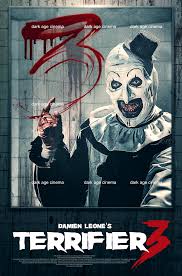
So, full disclosure, when I watched the first Terrifier movie over the summer, I didn’t like it much. It was gross, and there wasn’t really a plot, just a clown trapping people in an abandoned apartment building and killing them. And I know that to some people, that’s all that slasher movies are, but I know that they’re not, and that’s what irked me about it. But, I’d heard the second one was better, and decided to give it a chance. And it was better. It introduced intresting lore, a new magical component, and someone who knew about Art the Clown before he started killing. Then the third expanded on those elements, and it is confirmed that the fourth will, as well.
There are, it turns out, a lot of interesting and well done things in the Terrifier franchise. For example, the timelines are shifted slightly, as the cold open of the first movie is set during the second, and the final girl from the first movie ends up being Art’s companion through the next two, etc.
So I had some ideas about what I thought the franchise was about. I thought it might be an indictment of true crime. The first movie was so incredibly gory that I thought it could be overplaying it as a way to ask the audience why it felt so uncomfortable watching this, but would be fine listening to a glamorized, gossiped-up version of it after it happened. My theory was further supported - or so I thought - by the addition of the news incident from the cold open of the first movie into the plot of the second movie, as well as a character in the third installment who is a creepy “true crime girlie”, and weirdly insistent about Sienna’s presence on her podcast. I thought the franchise was, at its core, about the way society treats both the victims and perpetrators of serial violence - the victims are exploited for their trauma, and the perpetrators romanticized, almost as heroes. All this to say, I was reading between the lines of the franchise, and thought what I was seeing was really interesting, and had a lot of depth. Then, its creator, Damien Leone, tweeted this:
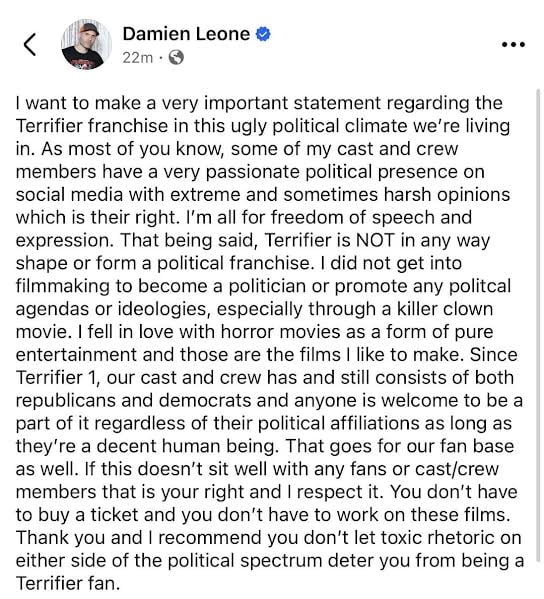
…which was disappointing to say the least. Then, he doubled down with this:
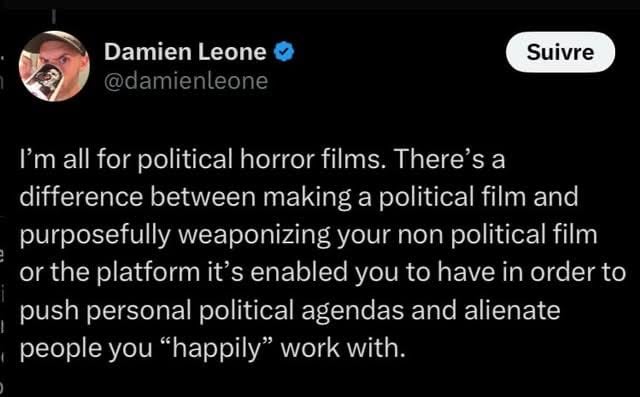
So, that was a lot. And, as I said before, it was disappointing. It also generated, for me at least, a lot of questions.
The first of these questions was: how the hell do you contribute to a horror renaissance - in the slasher genre even - and then claim that your movie wasn’t political? Even if you, as the creator, didn’t mean it to be political, movies are still, no matter what you do, a product of when they were created. All horror movies are political, intentional or not, because what is scary to people is directly impacted by the political climate of the time. In making a horror movie, you have to wonder what is scary to you, which is likely what will be scary to your audience. And those fears are the result of current events. Take the 80s slasher boom, for example. Were the creators of those movies sitting down and going “well, let’s make this death like this because of AIDS, and this villain gets these characteristics because they’re most associated with gay men, who have come to have a lot of cultural fear associated with them recently”? No, probably not. But they were connecting sex with death and blood, because they knew that would be scary to viewers. And they were giving those villains feminine characteristics because they found that unnerving, without really considering why. The cultural and political climate a movie is being made in will affect the movie, and its success, no matter what. It’s a subconcious thing, and there’s no escaping it.
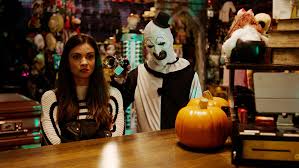
Second, this kind of post from a creator irks me as an author more specifically. I do write fiction, and, as such, have a certain kind of connection with the thought of creating media - whether it be a book, a movie, or anything else. And I think that what Damien Leone did with these posts is the exact wrong thing to do when in the position that he is, which is to say, suddenly having a very big platform as a result of his creative work. He discouraged other creators from using their platforms. And not only that, he used his to tell the people who watched his movie what he thought they should get out of it. So what I have to say about that is: it is not your place as a creator to do either of those things. You do not get to tell your audience what they get out of your movie. Your job is to put the story out there, and you have to do that with the knowledge that every story means something different to everyone who engages with it. You can’t - or at least, really shouldn’t - tell your viewers that what they got out of it was wrong somehow. People are going to find things in your story that you didn’t necessarily put there on purpose, and you as a creator have to make your piece with that.
You are also not, even as a fellow creator, in any kind of place to tell others what to do with their platforms. It is not up to you whether someone else’s movie is political or not. And to talk about “weaponizing your non political film or the platform it’s enabled you to have” in terms of what other people should do with their work is stepping so far over so many lines. It’s one thing to say that the audience that engaged with your franchise did so in a way that you didn’t agree with for an irrational reason. It’s quite another to use that to tell other creators how to use their movies and platforms.
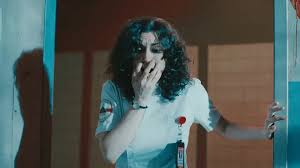
So where does all of this fit into the Terrifier franchise, and horror as a whole? Well, in terms of Terrifier, it’s disappointing to know that the guy who made it got mad that people were finding deeper, more complex things in it than he originally put there. That’s never fun. But it’s still a good franchise. There’s interesting lore, cool character development, great practical effects, and some truly excellent acting (especially from David Howard Thornton, Art The Clown himself. Do you know how hard mime is?). Also, you can still find the things in it that you did the first time. Same goes for any piece of media. If something in there speaks to you in any kind of way, that’s really cool, and should be dug deeper into. As the audience, it’s your franchise, too. And you can find in it what you will.
In terms of the horror genre as a whole, Damien Leone’s statements don’t mean a whole lot, but his movies do. I mean, even though the creator turned out to kind of suck, it’s still really cool that there’s a new, successful slasher franchise out there now, with more on the way. The Terrifier franchise is indicative of the horror renaissance we’re living in, which is, as all of them have been, a result of the current political climate. Horror movie booms happen during times of great political, social, and cultural upheaval (see Fearmongering for more on that), and, because of that, are influenced by that upheaval. Whether purposefully or not, horror is political, because what was scary then or is scary now is based in what is going on in the world.
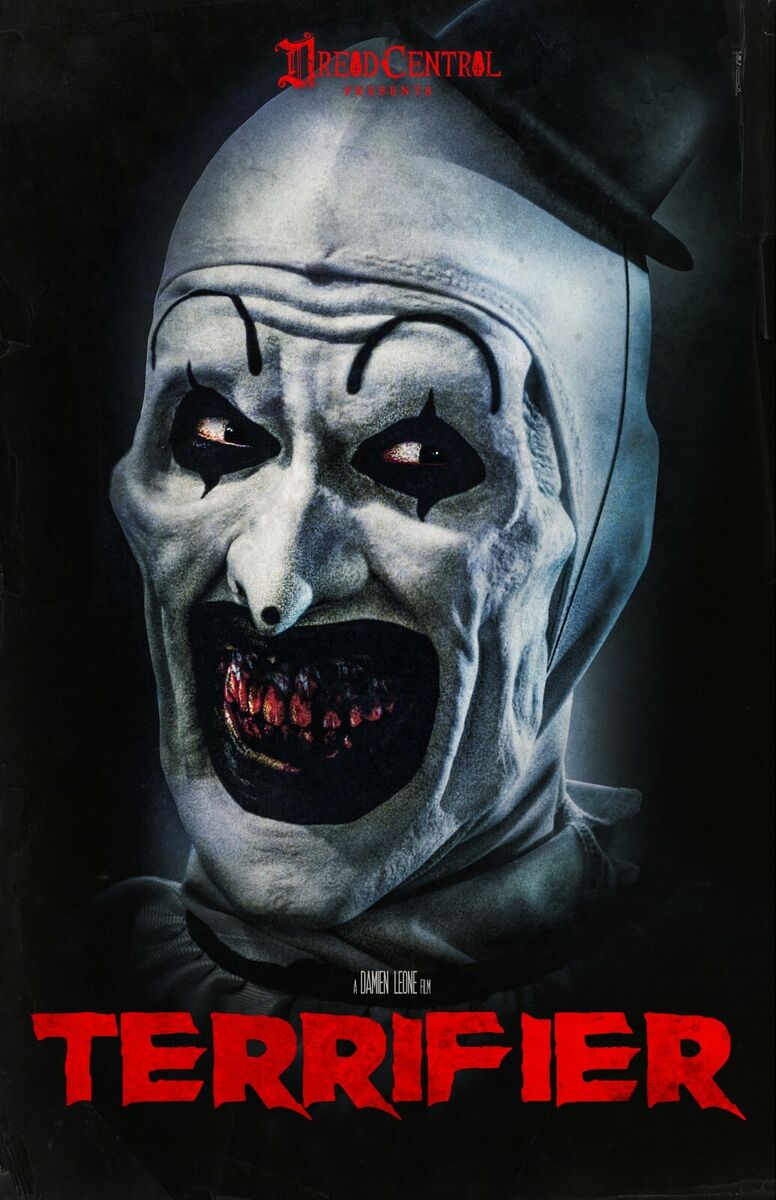
So, to recap: Terrifier is still a good franchise, despite the fact that the creator turned out to kinda suck. It is no one’s place to tell other people what to do with their platforms or creations. Also, in terms of decent people, the horror community has a really high concentration of those, with a lot of horror creators with big platforms using them for good things like fundraising for charities, and spreading messages of acceptance and empathy. So continue to find in media what is unique to your experience, and learn what other people found in it that is unique to theirs. It’s your franchise, too. You’re the audience.
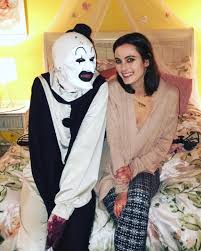
Thanks for reading, all! I hope you enjoyed, and that I got at least a little of my point across. The one year anniversary of So Desensitized is in a little over two weeks, which will set the standard schedule off a little, but I will see you then for that and all it entails! And, once again: go. To. The. Library. Supporting them also supports basically everything else you might want to support.
Happy reading, and stay spooky! 🔪🩸🤡
(P.S. If you want a clown slasher with a creator who isn’t afraid of politics in horror and is generally a nice person, I suggest Adam Cesare’s Clown In A Cornfield! The movie comes out May 9th, so read the book before you go see it, it’s really good and the movie looks awesome! And again, written by a reasonable human.)